Sign up for The Media Today, CJR’s daily newsletter.
“If you’re Black, you move to Harlem. If you’re Cuban, you move to Miami. And if you’re Arab, you move here.” Amer Zahr, a law professor and comedian, is a resident of Dearborn, Michigan, which, last year, became the first Arab-majority city in the United States. Just west of Detroit, the city is home to several of the country’s oldest and largest mosques, the Arab American National Museum, and the Arab American News, a bilingual weekly paper. (Early this year, an incendiary Wall Street Journal piece called it “America’s Jihad Capital.”) The population of Dearborn is just over a hundred thousand; a little more than half of the city’s residents identify as Arab. In 2020, Joe Biden won Michigan by fewer than a hundred and sixty thousand votes.
The significance of Dearborn’s Muslim and Arab American vote is clear. There may be no stronger indication than Elon Musk’s funding of a group called Future Coalition PAC to target the area with messaging touting Kamala Harris’s support of Israel. In 2020, Wayne County, where Dearborn is situated, went for Biden with a lead of some 330,000 votes. Democratic victory feels far from certain this time around.
When we visited the Dearborn area and spoke to members of the Arab and Muslim communities, they said overwhelmingly that the war in Gaza ranked at the top of their list of political concerns, a view informed both by personal connection and news consumption habits. Over the past year, many have made drastic changes to their media diets—tuning out major American outlets and seeking alternatives. Some said the American press didn’t provide as much attention to the war as they needed to feel informed; others criticized the coverage for being too credulous of Israeli military accounts, and insufficiently sensitive to the damage done to Palestinians. “The headlines would say, ‘A strike killed a dozen people in Palestine,’ but it is omitting the main culprit or country, which is Israel,” Nasir Fiaz, a twenty-five-year-old engineer at an auto company in Dearborn, said.
Many have come to rely on Al Jazeera and Lebanese TV news networks. Several simply prefer to receive updates from family members and friends in the region—who, in turn, share posts on social media documenting the reality on the ground. “I’m a mother,” Haneen Mahbuba, a thirty-year-old Iraqi American, said. She follows a constant stream of videos—including, she noted, an Al Jazeera documentary, The Night Won’t End: Biden’s War on Gaza. “I could not contain my tears.”
In conversations with dozens of Muslim and Arab Americans of voting age—some producers of media, others consumers of news—nearly all expressed apprehension about voting for Harris, because they associate the current administration with the violence in Gaza. During the primaries, more than a hundred thousand Democratic voters in the state cast “uncommitted” ballots in protest against Biden. A surprising number said they planned to back Jill Stein; some told us that they would abstain from voting for a presidential candidate. A few shared their thoughts in detail about how they’re making up their minds politically—and the important role played by the coverage they see. This story was produced with support from the Round Earth Media program of the International Women’s Media Foundation. —Text by Meghnad Bose
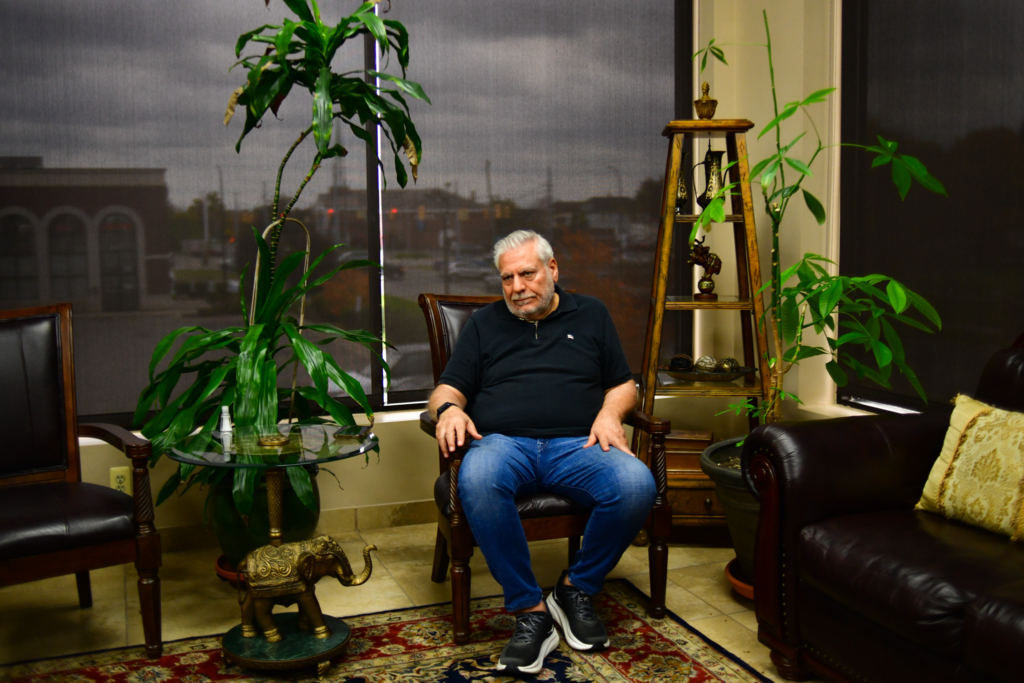
Osama Siblani, a sixty-nine-year-old Lebanese American and the longtime publisher of the Arab American News, has been a prominent fixture in Dearborn for decades. Born in Baalbek, Lebanon, he flew in to the United States in 1976, escaping the Lebanese Civil War with less than two hundred dollars in his pocket. He founded the Arab American News in 1984. “Hollywood had portrayed us as sheikhs with a lot of money but no brains, womanizers who don’t respect people, as animals,” he recalled. He wanted to help his community take control of their narrative. Today, he said, the paper prints around thirty-five thousand copies. “The English goes from left to right, and the Arabic from right to left, and they meet in the middle.”
Over the years, Siblani has been a vocal critic of major outlets’ coverage of the Middle East, including during the Iraq War. “They make excuses justifying the invasions,” he said. He’s turned instead to policy journals. He has also gotten directly involved in politics, cofounding the Arab American Political Action Committee. Arabs have come to prominence in Dearborn of late, which he views as a collective accomplishment. But following the news out of Gaza has been painful. On Thursday nights—designated for all-nighters, as he oversees final touches on the next edition—his mind whirs with images of bombed-out neighborhoods. Recent issues have featured the Palestinian flag on the corner of the front page. In October, the paper made an endorsement in the presidential race: urging people not to vote for either Kamala Harris or Donald Trump. “We refuse to endorse candidates who do not care about us or our concerns, continue to divide America and are complicit in an active genocide,” the piece went. “Our votes matter and withholding them will show that we cannot be ignored or taken for granted.” Siblani plans to abstain.
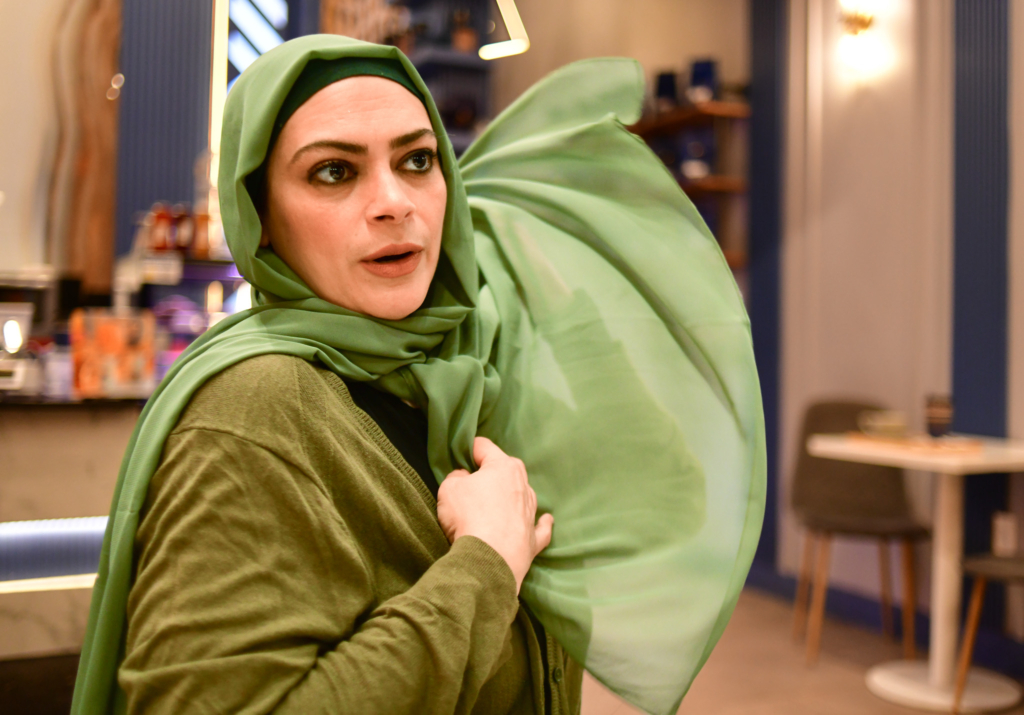
When Donald Trump first ran for president, Micho Assi was studying biology. His vitriol sucked her in. “I thank Trump for letting me hate his politics—and become not only someone who votes, but also mobilizes the Muslim vote,” she said. Assi, who is forty, was born in Nabatieh, Lebanon, and moved to the United States when she was eighteen; she became a citizen a few years later. When it comes to national news, she has an omnivorous media diet: CNN, MSNBC, NPR, BBC, Fox, the New York Times, the Washington Post. “I like to read things from different angles,” she said. “I want to gather the entire picture but also see through what lens the other people want us to see things, even if I don’t agree.” For general international coverage, her preferred source is Al Jazeera. For the word on Israel, she turns to Haaretz. When it comes to Lebanon, “my source of information and footage is all of my family-and-friends group chats.” The first thing she does in the morning is check WhatsApp, she said, to make sure her loved ones are still alive.
A Democrat, Assi has been knocking on doors this election cycle; she’s focused on talking to her neighbors about down-ballot races. “I know a genocide did happen under Democratic leadership,” she said. “However, I still want to believe that VP Harris—if she were to become president, I’m hopeful that she will be more movable than a Trump administration when it comes to Middle East policy. And if that gives me one percent hope, I’m basing my decision on that one percent.”
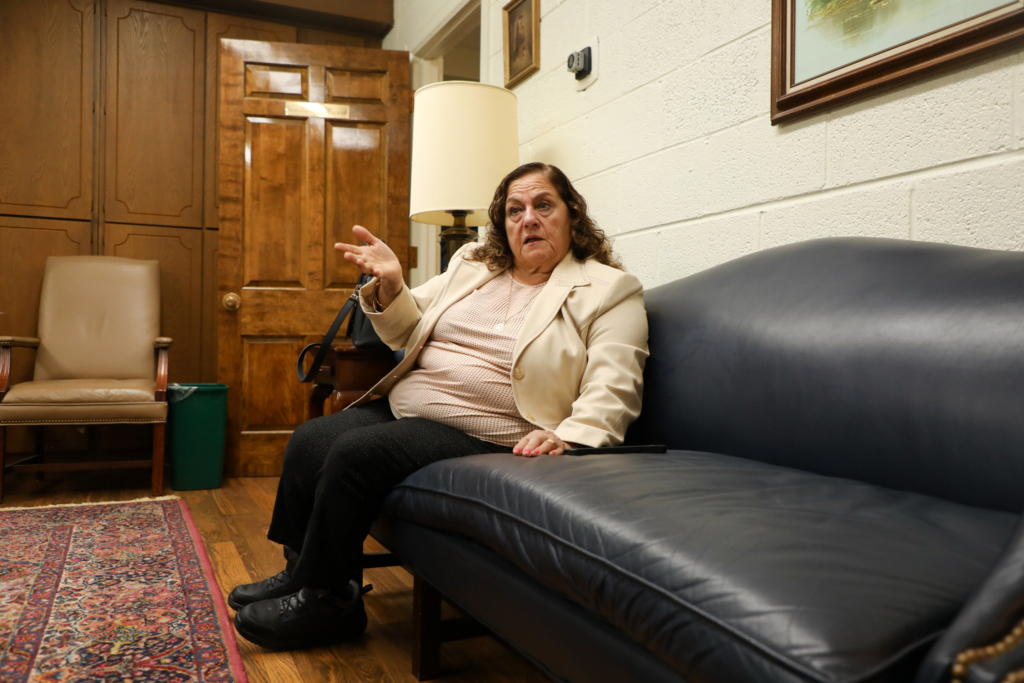
Rose Bechara Damouni’s life has been marked by war and displacement from the beginning. Her father was exiled from the Palestinian village of Al-Bassa in 1948, upon the founding of Israel; he migrated to Lebanon, where he met his wife. Rose was born there, ten years later, in a refugee camp in Dbayeh. She was raised Christian, and attended a UN school. Then, in 1975, a week before civil war broke out, her family left the country for Benghazi, Libya, where she eventually worked as an oil company secretary, doing Arabic-English translation. She got married. Then she and her family moved to Dearborn in 2007, drawn to the Arab population, and she became a citizen. Every evening, she watched NBC News.
But in the past year, Damouni’s loyalty to the broadcast has waned. “I wait to hear the news about what’s going on with the war, but I don’t,” she said. In general, she views the American press as biased. “They talk more about Israel, they feel more sorry for the Israelis than the Palestinians,” she said. “They don’t show everything that’s going on with the Palestinians, how they live without food, without water. The thousands of children and women and people without weapons who are killed.” Lately, she has been switching on Arabic-language news: the private Lebanese stations MTV, LBCI, and Al Jadeed; Al Mayadeen, a network that’s been called a mouthpiece for Iran and Hezbollah; as well as the Saudi-owned Al Arabiya. “If I am a Palestinian, I shouldn’t close my eyes,” she said. “Even the foreigners shouldn’t.”
Damouni, who is sixty-six, has always voted in presidential elections, consistently for Democrats. But this time, following updates from home—on TV, as well as social media, including WhatsApp—she won’t commit to Harris or Trump. “I don’t support people who are killing our people,” she said. She’s not sure who will get her vote. She mulls it over during her nightly news routine—in the wee hours. She doesn’t like to tune in while watching her grandson, who is seven months old, much too young to see images of killing.
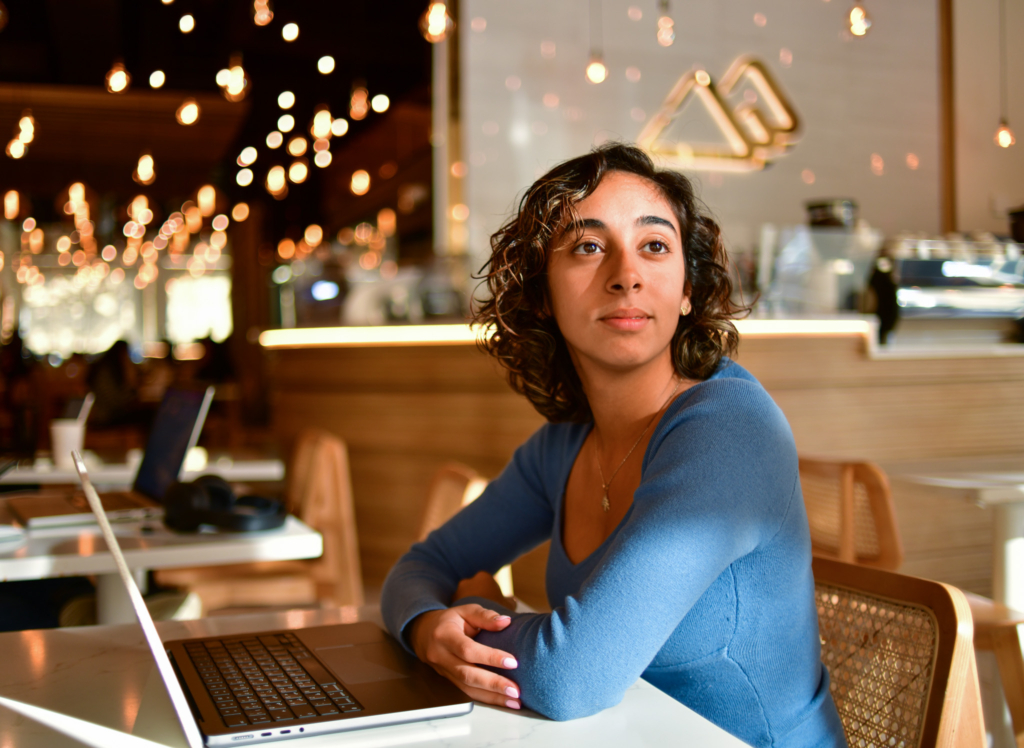
Sara Chaaban is twenty, studying journalism at the University of Michigan–Dearborn. A Lebanese American, she was born in Riyadh and came to the US at a young age; she grew up consuming both Arabic TV and American news—the Times, CNN. Her dream of becoming a reporter began taking shape when she was a kid. “I had this Barbie toy. It had a video camera, and it opened up and made a sound like, ‘We’re on air in three, two, one…’” Now, however, Chaaban has become disillusioned with major outlets. “They’re pushing this narrative that makes Arabs look barbaric,” she said. For instance: a report on a “list” in the basement of a Gaza hospital—supposedly a schedule of Hamas guard shifts, per the Israeli military, and as repeated by press outlets—but actually just an Arabic calendar. “It shows so much incompetence. You’re hurting people in the process.”
In one of her journalism classes, a professor shared the opinion piece from the Journal, “Welcome to Dearborn, America’s Jihad Capital.” Chaaban said the essay “actually makes it dangerous for us in Dearborn.” In the past year, it has been “heartbreaking to see that news outlets that I glorified don’t like us.” She still wants to be a journalist, perhaps at Al Jazeera—which, she said, is “exposing other news sources, like the BBC and CNN, for their bias,” as in a segment called Failing Gaza: Behind the Lens of Western Media.
This presidential election will be Chaaban’s first as a voter. After a year of watching footage from Gaza, and now Lebanon, she said, “We’re literally stuck between evil number one and evil number two.” She dislikes Trump’s racism and Islamophobia—but “at least a Republican hates us out loud,” she said. “I don’t like a Democrat who goes ‘Oh, we love you guys’ and then goes and bombs our family.” The war looms large for Chaaban. By her logic, Trump is the right choice.
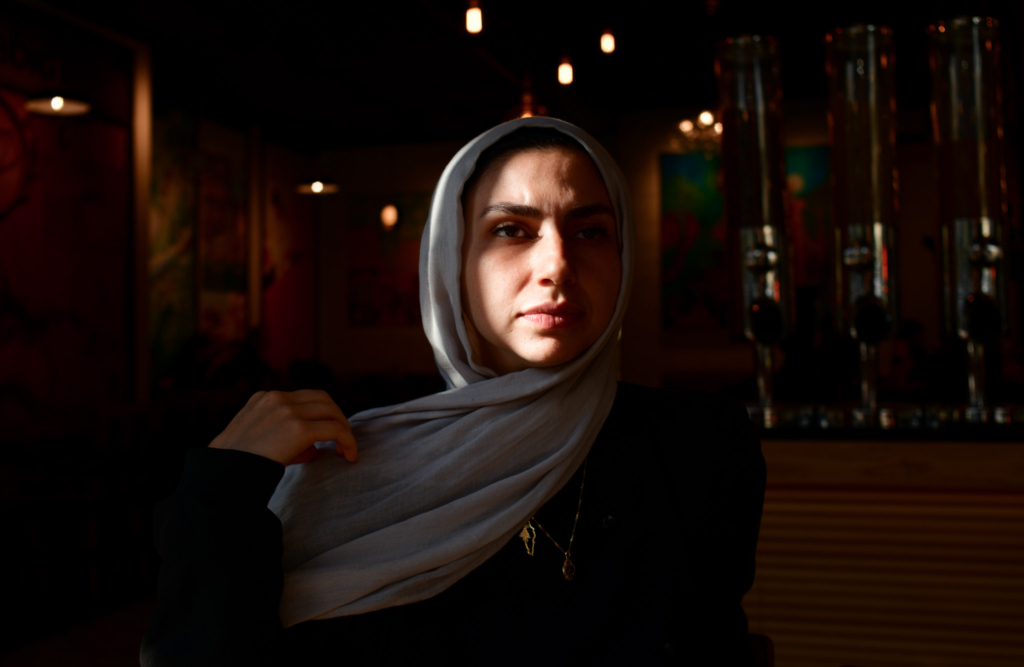
“I literally don’t even have cable television,” Afeefeh Seblini, a twenty-nine-year-old product designer, said. She is Lebanese American, and wore a necklace in Lebanon’s shape, with a cedar tree; on her handbag was a Palestinian flag pin. The mainstream media narrative, in her view, has been: “Oh, we can’t get journalists on the ground because Israel insists on accompanying any foreign journalists that are in there.” According to recent findings of the Committee to Protect Journalists, at least a hundred and thirty-four journalists and media workers have been killed in Gaza, the West Bank, Lebanon, and Israel since the war began, in October 2023, making it the deadliest period for journalists since CPJ began gathering data, in 1992. To Seblini, that underscores the significance of local reporters’ work—members of the Palestinian press she finds primarily on Instagram. “Every time I find another one, I follow them,” she said. There have been times when she has come upon the profile of a Palestinian journalist after they’ve been killed. “And you see people commenting on their previous posts.”
Seblini will have Palestine and Lebanon on her mind when she turns up to vote. She can’t support Trump, listing her reasons: “The Muslim ban, moving the capital of Israel to Jerusalem, using ‘Palestinian’ as a slur.” Even so, Harris is a “genocide enabler,” she said. “So, as far as I’m concerned, they’re two sides of the same coin.” She plans to support Jill Stein.
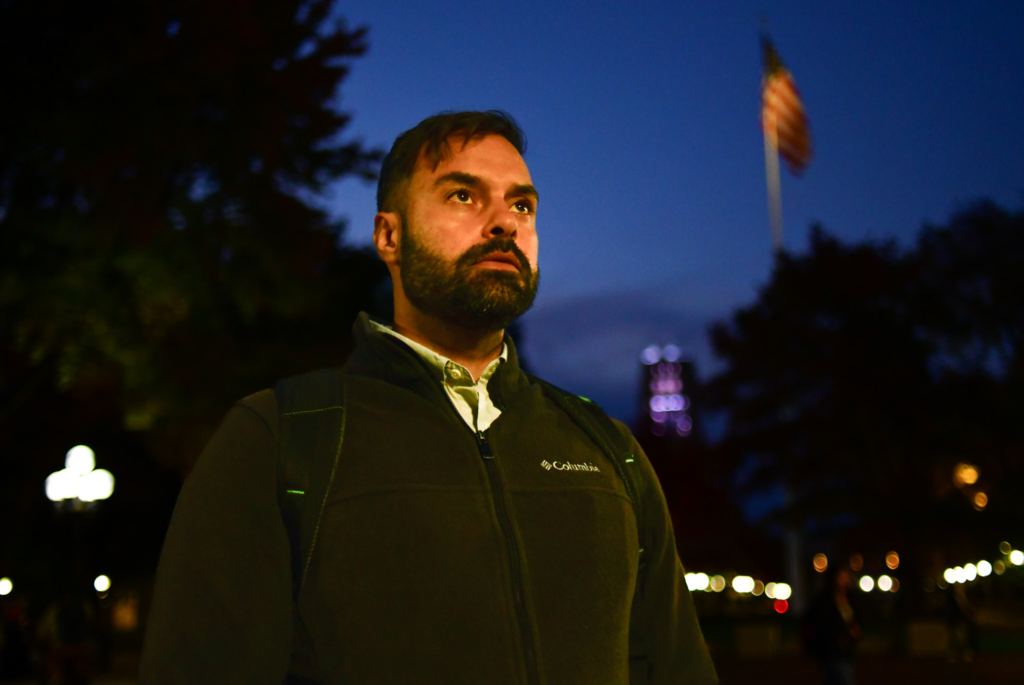
Omar Saadeh’s father, a chemist, was a professor at the Islamic University of Gaza. Last October, Israeli forces destroyed the campus. “There’s nothing left, it’s all gone,” Saadeh said. His father had retired, but still lived in the area, where he remained for three months of the war. “He was stuck, there was nowhere for him to go.” When he finally could get out, it cost ten thousand dollars.
Direct exposure to the consequences of bombardment has, for Saadeh, struck a contrast with the news coverage he’s seen in American outlets, especially on cable news. “It’s been challenging and difficult to rely on any sort of mainstream sources, because it’s just the way things are framed and the way information is presented—there is that bias,” he said. “The Israelis claim that there were weapons in these residential buildings. Where’s the fact-checking?” He continues to read the New York Times, though he prefers the Financial Times—one of the few major papers, notably, with an Arab editor. He’s had to take a break from social media: “It was just too much for my own psyche.” That has come to bear on his approach to the presidential election. “I’m just unhappy with all the choices,” he said. He intends to vote, but he hasn’t made up his mind.
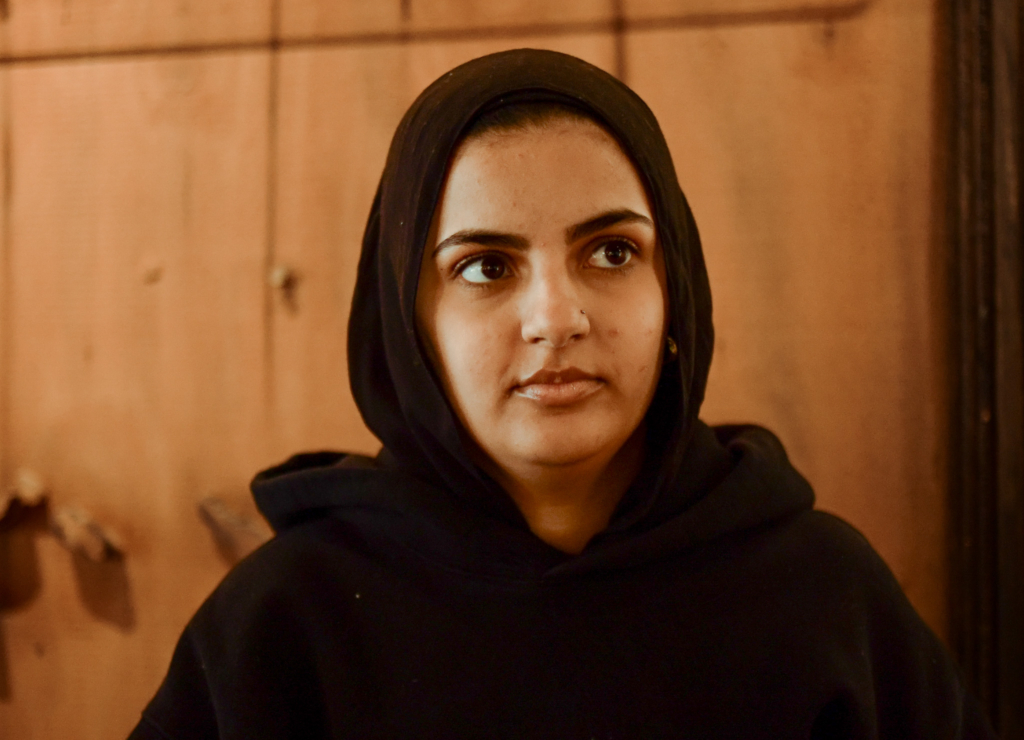
“Being in an Arab household, Al Jazeera is always on,” Hadil Alhjaji, a twenty-one-year-old Yemeni American student, said. She watches with her father. “I do watch CNN and Fox, of the American mainstream news outlets. Just to get both aspects of what I’m being told.” But she gets most of her news from Instagram and Tiktok, following people in Gaza. “It’s showing in real time what’s actually happening,” she said. “It’s a lot more brutal than what you’ll see on TV.” Among her go-tos: Wissam Nassar, a Pulitzer finalist for breaking-news photography with 1.9 million Instagram followers. She remembers seeing the image of a man carrying his son, shrapnel stuck in the boy’s legs. “You see that, and then you scroll up and it’s Kamala Harris or Biden saying Israel has the right to defend itself,” she said. “But who are they defending against?”
This will be Alhjaji’s second time voting, and her first presidential election. Before, she’d backed the Democratic Party; this time, she’s undecided, and averse to Harris. She has received some pushback from her “white liberal friends,” she said. But when she visits their homes, their parents are watching Fox News or CNN. “The media will refer to Palestinian children as adults,” she observed. “I remember an article referring to Palestinian paramedics as Hamas.” On her channels, it’s different. “When it’s Arabic, it’s reporters from the region,” she said. “When you see the reporters on the ground from Al Jazeera, they live, like, three houses down. It’s very personal to them. Whereas you’ll see the CNN reporters who just flew out from America—and they’re not even near the front lines.”
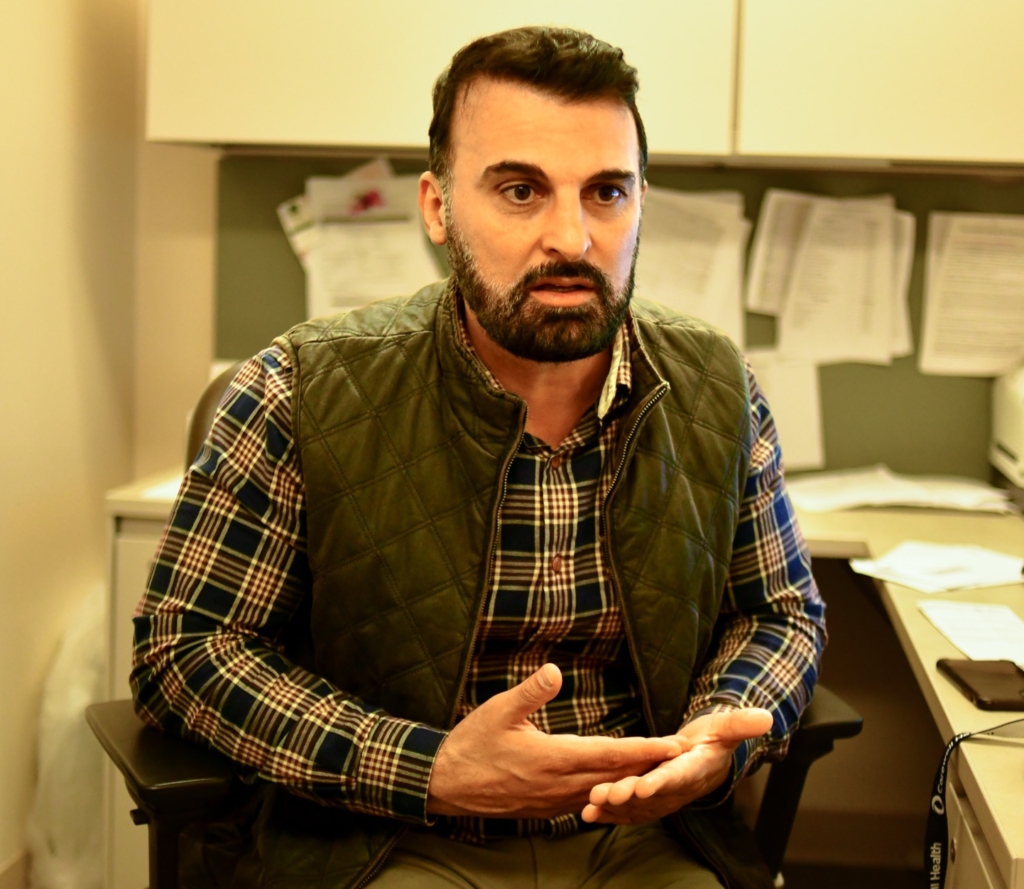
Dr. Ali Dabaja, a Lebanese American physician, remembers addressing a group of Muslims at a rally in Dearborn in December 2015. Trump’s first presidential campaign was a few months old, though he’d already said enough about Muslims to make Dabaja feel that he was “clearly a bigot.” Before a crowd at Dearborn’s Islamic Center of America, he said, “We will not bow to hate. We will not be defined by fear and we will not be subject to savage speech that separates the heart of our community and the community of Americans, that causes us to be suspicious of one another and our neighbors.” Nine years later, Dabaja, now forty-three, feels similar resentment toward both major candidates. “Trump is not good: not good for America, not good for Arabs, not good for Muslims,” he said. “The Democratic Party has policies in place that are forcibly displacing our people, erasing our culture and community.” He’s voting for Stein.
Dabaja gets his news mostly via social media—Facebook, Instagram, and Telegram, where he receives daily coverage from Gaza via Al Jazeera and Middle East Eye, a London-based site. (Both outlets have been said to have government ties; in 2017, Saudi Arabia, Egypt, the United Arab Emirates, and Bahrain demanded that Qatar stop funding them.) Dabaja also follows an account called “Doctors Against Genocide” and, on WhatsApp, he receives updates from a community of Lebanese American medical workers. He follows Al Mayadeen and Al Jadeed and Al-Akhbar, a Lebanese newspaper.
Dabaja also pays attention to pro-Israel channels such as Jewish Breaking News, and he reads translated text from Hebrew News “to see the other side of the story,” he said. There’s a lot to take in, but he checks the news only on his phone; he doesn’t want it on TV at home. “We as a family decided that’s a lot of trauma,” he said. “It’s a news-free house.”
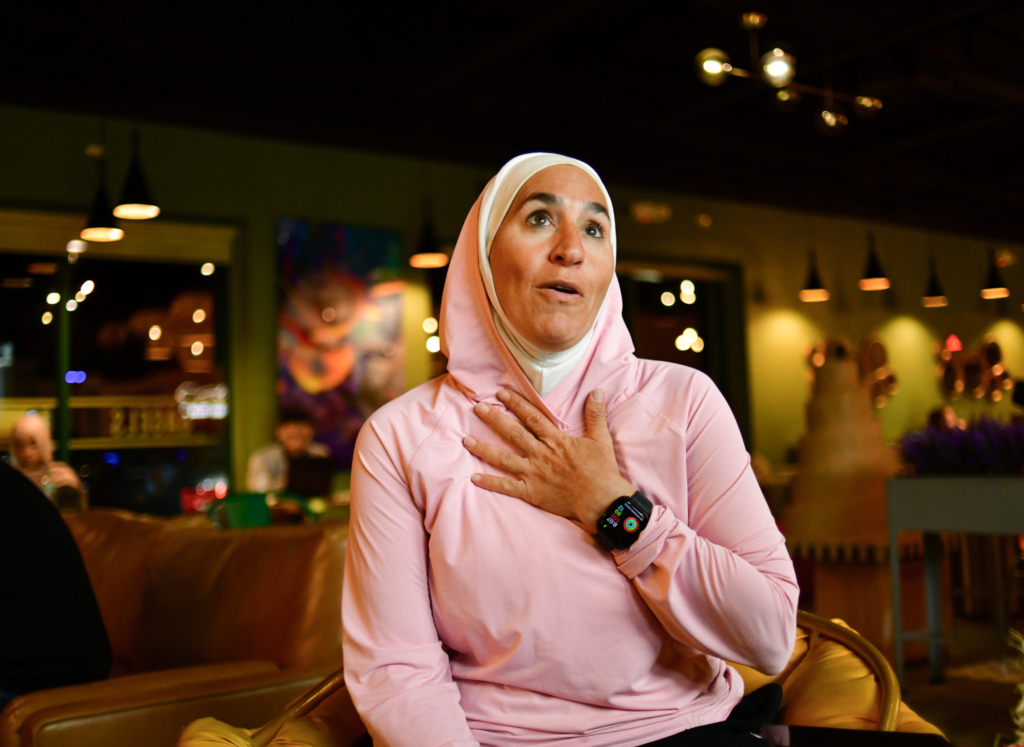
Connie Kazan, who is forty-five, is a third-generation Lebanese American, born and raised in Dearborn. “I stopped watching cable news completely because it portrayed Arabs as terrorists,” she said. “This happened in the 2006 Lebanon war. You had a resistance protecting their area, and the media was saying ‘These are terrorists.’” Kazan now makes media of her own: she is an influencer who posts easy-to-bake recipes. Recently, she took two trips to Egypt, where she spent time meeting with families from Gaza in makeshift shelters—and documenting her encounters for more than six hundred thousand followers. “A lot of people told me, ‘If it wasn’t for your posts, I wouldn’t have known what was going on.’”
Kazan is critical of the Biden-Harris administration’s handling of the war. “If America would stop giving our money to Israel, this would have been done by now,” she said. She plans to vote for Stein.
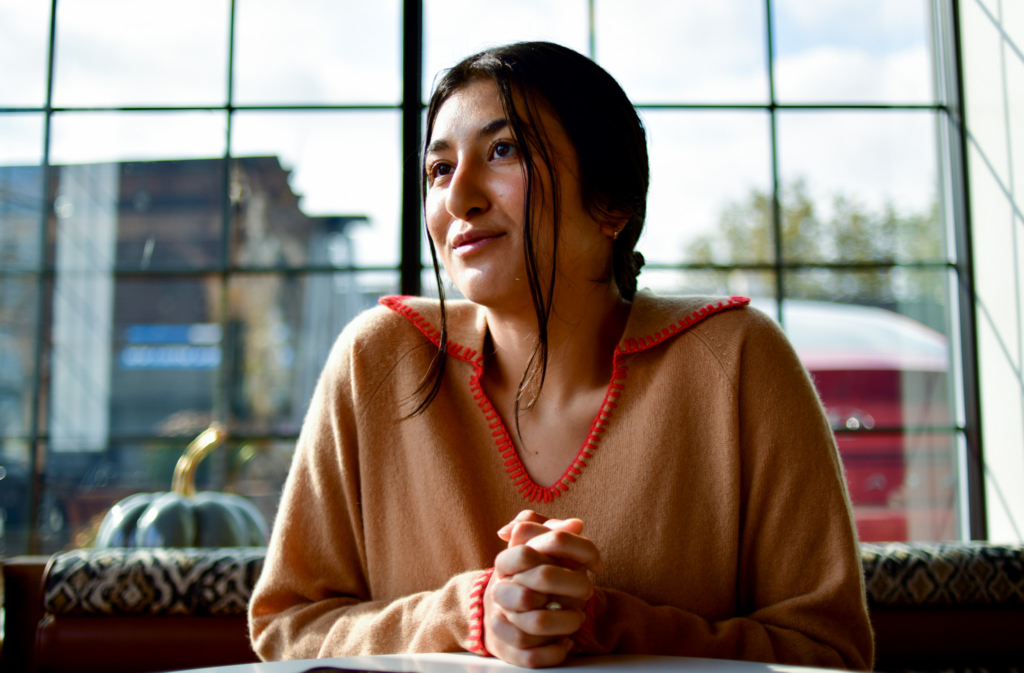
“In the history of the US media, we have consistently been dehumanizing Palestinians, and also a larger group of Middle Easterners, Arabs, Muslims,” Saba Keramati, a thirty-year-old writer, said. “That has led to people sort of being okay with what is happening—or at the very least, trusting the mainstream news of what they’re seeing.” Keramati, born to a Chinese mother and an Iranian father in California, has lived in Michigan for most of the past decade. She works as an operations manager at Prism, which produces journalism focused on social justice. “There are big-name news outlets that a lot of people read, that have histories of great and important reporting and have gained the trust of many, many readers—and now are abusing that trust,” she said. She prefers to follow individual reporters she trusts, such as Bisan Owda and Hind Khoudary, who are both Palestinian. She’ll track their work on social media, along with dispatches from activists.
Keramati has voted Democratic in the past, but she has come to associate the Biden-Harris administration with Israeli attacks in the Middle East. She’s planning to abstain.
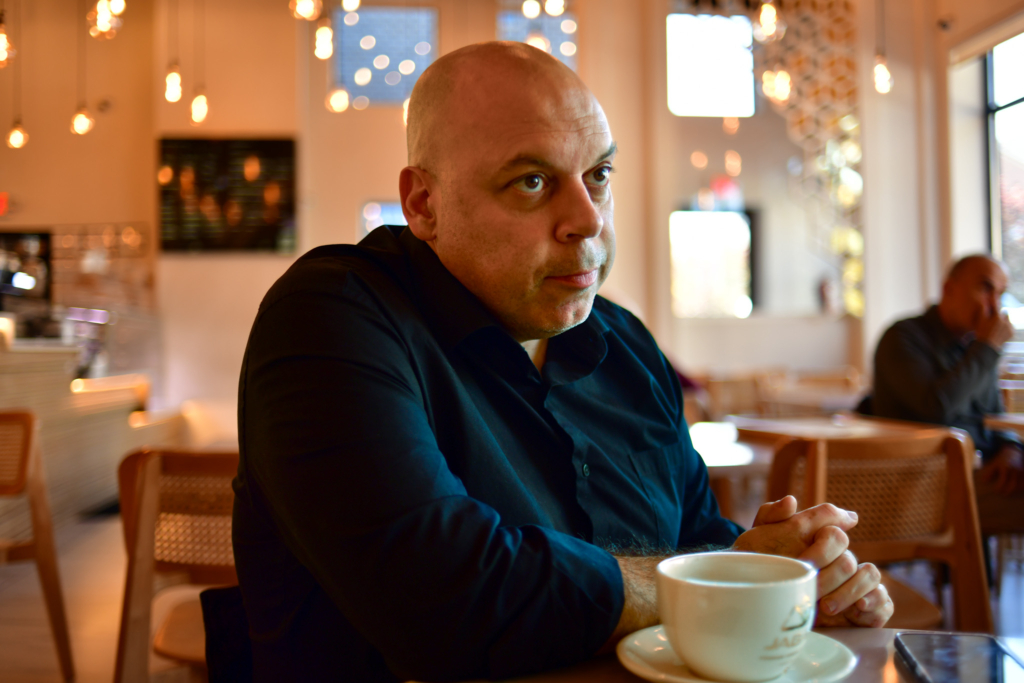
Amer Zahr is a Palestinian American comedian, lawyer, and adjunct law professor. Born in Amman, Jordan, he moved to the US with his family when he was three. “If you’re Black, you move to Harlem,” he said. “If you’re Cuban, you move to Miami. And if you’re Arab, you move here.” Now forty-seven, he goes to Palestine regularly; in the past year, he’s been to the West Bank twice. “That will inform how I get my news,” he said. He gathers information from the people he knows, mainly, and from social media. “I do follow the mainstream news outlets here in America. Well, not to learn anything, but to understand what Americans are learning about us, right? To understand how much disinformation they’re getting, so that I can talk about it and try to address it.” He sees a pattern. “When there’s a story about Arabs or Muslims, for some reason, the experts are white and they are never experts in our culture,” he said. “They are always national security experts or terrorism experts. They never talk to us, they always talk about us.”
Zahr had been a Bernie Sanders surrogate in 2016 and 2020, and is a critic of the two-party system. He’s resentful of the way that Democrats, including Harris, have handled the war in Gaza. “Her losing is the only way to get the Democrats to understand us and respect us and listen to us,” he said.
Has America ever needed a media defender more than now? Help us by joining CJR today.



